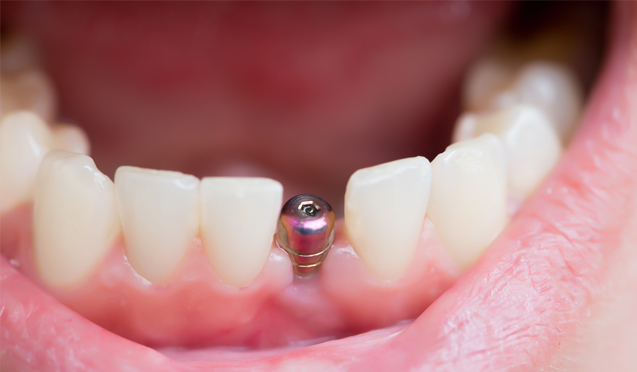The inflammation of the soft as well as the hard tissues of the gum located around the dental implant is called Peri-Implant Disease. Just like in the natural teeth, bacteria and other harmful organisms can form clusters at the base of the implant and cause the peri-implant disease.
Peri-Implant Disease Types
- Peri-Implant Mucositis: This condition is similar to gingivitis and affects only the gum tissue of the patient.
- Peri-Implantitis: It is a more severe form of the disease and results in bone loss. Corrective surgery may be required to handle the infection.
What causes the Peri-Implant Disease?
When you hire a reliable tooth implants Melbourne organisation, there is no reason to worry about the disease. The experts would offer maximum protection against all types of potential infection and ensure that the dental implant installation is made 100% safe. Peri-Implant disease may be the result of one or more of the following conditions:
- Improper fitting of the dental implant
- Vertical bone grafting
- Over-sized dental implant
- Bone issues like soft bones and overheated bones.
What are the signs of Peri-Implant Disease?
The problem starts with the swelling and bleeding of the gums followed by the following symptoms:
- Deepened gum pockets
- Pus formation in and around the dental implants
- Excessive bleeding
- A purplish appearance of the skin
- Metal thread exposure
- Length of the tooth
How can the Peri-Implant disease be prevented?
Regular cleaning of the areas around the Melbourne dental implants and maintaining optimal oral hygiene are the best ways to prevent Peri-Implant disease. Dental implants are just like the natural teeth and demands regularly cleaning and flossing. Patients who have dental implants must not ignore any form of discomfort around the implant area and must seek professional help if necessary. Apart from this, prevention of other risk factors like excessive smoking, presence of periodontal disease, diabetes and lack of plaque control can also keep peri-implant disease away.
How to treat peri-implantitis?
Peri-Implant disease can be treated effectively if detected during the earliest stages. But the problem is that the disease is a silent killer and distinguishing the symptoms can be very hard. Most cases of peri-implantitis require surgery to be rectified. During the surgery, the gums in the affected area are opened and this is followed by the detoxification process. At the end of the surgery, all the harmful microorganisms are removed completely and the bone is re-grafted onto the implants.
So if you have newly installed dental implants Melbourne and are proud to show off your natural looking replaced teeth for many years, then you must pay attention to Peri-implants disease and other alternative treatments.


